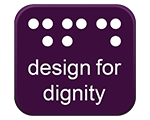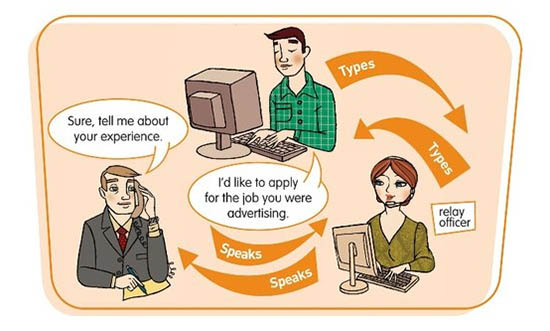Design For Dignity
Retail Guidelines





The National Relay Service (NRS) is an Australia-wide phone service for people who are deaf or have a hearing or speech impairment. This service allows people to talk to a business (or family or friends) through an NRS relay officer. The NRS is an Australian Government initiative funded by a levy on eligible telecommunications carriers.
Your customers who use the NRS are making phone contact with you using a range of different technologies. The caller can be speaking, typing or signing.
There are eight NRS call channels that an NRS user can use. All calls involve a relay officer whose role is to relay information between you and your caller. In most of these call channels, staff can talk to the relay officer if there are any queries about the call process.
Staff do not need any special equipment to receive a call.
The NRS is available 24 hours a day, every day, and relays more than half a million calls each year throughout Australia.
When taking a call through the NRS, your staff need to conduct the conversation in the same way as you would with any customer who phones you. Speak directly to the caller — not the relay officer. Each time you have finished speaking, it is helpful to say ‘Go ahead’ or something similar. Speak in short, clear sentences at a moderate pace. A call made through the NRS may take longer than a standard call. The NRS supports businesses in becoming more accessible by offering free training, education and learning resources.
Yes. The Privacy Act specifically exempts NRS relay officers from being considered third parties in a phone call. The Office of the Australian Information Commissioner states that “Businesses, service providers and government agencies do not need an NRS user's written or verbal permission to collect, use or disclose the NRS user's personal information in the presence of or with the assistance of an NRS relay officer. Businesses, service providers and government agencies will not be breaching the Privacy Act by collecting, using or disclosing personal information with individuals through the NRS.”*https://www.oaic.gov.au/agencies-and-organisations/faqs-for-agencies-orgs/businesses/will-businesses-service-providers-or-government-agencies-be-breaching-the-privacy-act-by-providing-information-to-customers-through-the-nat
Viewed September 2016